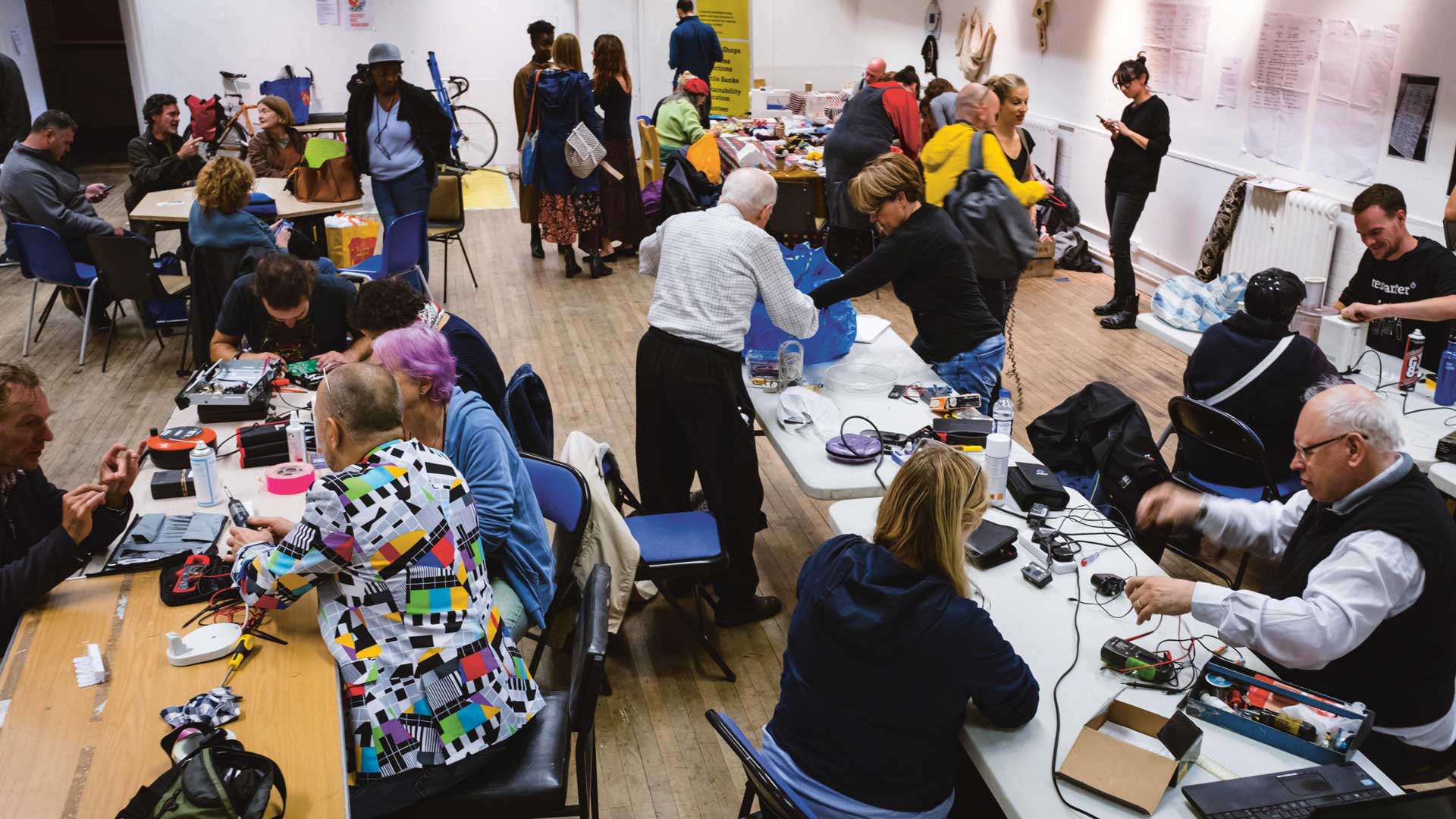The parties rely on volunteers sharing their expertise.
“That was the biggest eye-opener,” Gunter continues. “We didn’t expect there to be so many people interested in sharing their skills. Repair tends to be a quite solitary activity and I think a lot of people were keen to get out, meet people and have a purpose.”
Do people bring devices to be fixed for financial or for ethical reasons?
“They kind of overlap at times and the same could be said for volunteers,” she says. “Some people are really motivated by the environmental aspect, others really enjoy the curiosity and the satisfaction of fixing.”
Gunter explains that a Restart Party can be like a game of roulette. You never know what you’re going to get. That’s no surprise given that an estimated £1bn of electronic devices sit in UK homes unused, most having developed a fault that we just haven’t quite got around to sorting yet.
A survey for the Royal Society of Chemistry last month found that 51 per cent of households have an unused device. Half of 16 to 24-year-olds hoard more than 10 deceased devices. Eighty per cent of people admit they have no plans to recycle them.
The reason we keep replacing devices is largely down to the fact that we are encouraged to upgrade regularly, which often means completely replacing perfectly usable devices.
Designing products to fail is nothing new, but Gunter says it’s unsustainable for society to continue to replace rather than repair things.
“A lot of people feel the system is rigged but sometimes we’re more complicit than we might acknowledge,” she says. “We want stuff cheap so the components are cheaper and cost-cutting in the manufacturing process makes them difficult to disassemble. You just need to open something up and you’ll immediately experience barriers to repair.”
Repair culture was common sense in the past. It is common sense in the future
The Restart Project has links to similar organisations throughout the UK and the world, and is trying to change the way products are made and sold in the first place. Their Right to Repair campaign grew from last year’s FixFest in Manchester and will be launched this autumn. It is built on three pillars:
• Repairable design. Everything should be designed to be disassembled for repair, not just recycling. So for example, less glue should be used
• Access to repair documentation. That could be manuals or diagnostic software
• Access to quality spare parts. The problem with a lot of items that can’t be fixed at Restart Parties is that there are simply no parts available
Gunter’s fear for the future is that more than hardware developing faults, smart devices could risk early obsolescence because software support might end. Indeed, Google Chromebooks effectively come with an expiry date. After a new model is launched, software support is guaranteed for six and a half years. But if you buy the model a couple of years after release it will operate for only four years, after which it won’t be updated and its security could be vulnerable.
But the Restart Project is optimistic. It believes that with extended software support, electronics could become heirlooms.
“Repair culture was common sense in the past. It is common sense in the future,” says Gunter. “We’re just living in this exceptional moment of peak throwaway, and we don’t even know it.”









